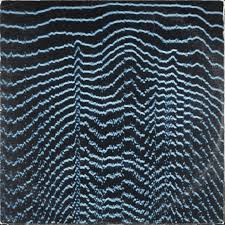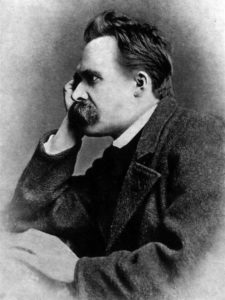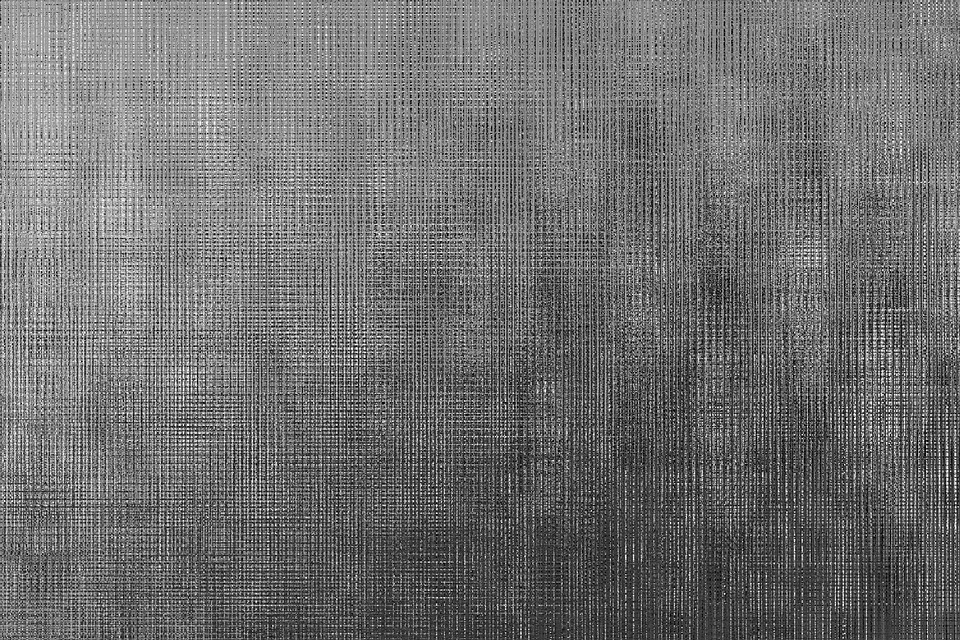The crazed messenger first delivered the news that god is dead and that we have killed him. We are the murderers of god, but as the makers of god, in Nietzsche’s eyes this is only a fitting end.
Religion, Friedrich Nietzsche claimed, is a belief that springs from desperation and cling to an incomprehensible belief in an incomprehensible Being. Mortal men clutch desperately to this belief because they are fleeing in terror from the cold despair of nihilism, and they would rather live with the lie of god than the truth of nothingness.
Nietzsche’s writing begins with our edifices, reduces them to rubble in a radical, nihilistic deconstruction, and then posits his uniquely Nietzschean “solution.” Nihilism is the truth that “god is dead,” and, more completely, that there is no meaning or truth or right at all. It means that there is no such thing as wrong, which is the most devastating consequence of everything he has said. Nihilism is the claim that “Everything is as it should be,” to quote the murderer Raskolnikov in Dostoevsky’s Crime and Punishment, in the moment of his deepest despair.
No god! Nietzsche
There is no god, Nietzsche said. There is only man, and Nietzsche despised the weak and pusillanimous fools in the world – that is, all of us – who exercise our debauched appetites and bow down to fear.
 What is too often overlooked is that, far from meaning only the religious believers in a monotheistic god, Nietzsche detested even the irreligious beliefs of scientists, secularists, Hegelians, Marxists, and so on. Nietzsche despised the belief of anyone who accepted purpose, truth, objectivity, meaning, or any such gods, as being real. There is nothing, Nietzsche said. Do not make excuses or give reasons. God is dead. The gods are dead. There is nothing. The hope which men cling to is a lie.
What is too often overlooked is that, far from meaning only the religious believers in a monotheistic god, Nietzsche detested even the irreligious beliefs of scientists, secularists, Hegelians, Marxists, and so on. Nietzsche despised the belief of anyone who accepted purpose, truth, objectivity, meaning, or any such gods, as being real. There is nothing, Nietzsche said. Do not make excuses or give reasons. God is dead. The gods are dead. There is nothing. The hope which men cling to is a lie.
At the same time (and this is a paradox in Nietzsche, if not a flat-out contradiction), Nietzsche insists that men must live honestly. Nothing is right or wrong, but Nietzsche insists that we must remain true to that reality. If nothing is true, we must not pretend it is, but we must exult ourselves into the void, we must crow ourselves into being. Nietzsche says we must do this, but being honest, he knows that there is no one who has yet lived who could actually accomplish it. There was only ever one man, Nietzsche mused, who came close to rising above good and evil to truly exercise his will to power, a man who disregarded his own life for a belief of his own making. This man did the unthinkable – he chose to love and to forgive those who, jeering at him as he suffered and died, had hung him on a cross. Jesus Christ was the only example Nietzsche could summon of a man above all men.
 Nietzsche was not a fool and saw that mankind without purpose, without meaning, without sense – mankind without god – was not prepared for the consequences of the death of god. The death of god was not a matter for celebration, but complete and total despair. Only the superman, the over-man, could live freely in the meaningless void, but we – not any of us, and not Nietzsche himself – are such an “ubermensch.”
Nietzsche was not a fool and saw that mankind without purpose, without meaning, without sense – mankind without god – was not prepared for the consequences of the death of god. The death of god was not a matter for celebration, but complete and total despair. Only the superman, the over-man, could live freely in the meaningless void, but we – not any of us, and not Nietzsche himself – are such an “ubermensch.”
Nietzsche, in the end, was not simply a nihilist, because he believed in the ubermensch who could (or would) exercise his will, pure will, for no other reason than itself and in a total void. Nietzsche believed in the possibility of a man who could rise above mere mortality for the short span of his life, but he affirmed that there never had been such a man, and he gave no reason to believe that there ever would be.
If Nietzsche is right and god is truly dead, we also must despair.
Nietzsche was not simply a nihilist, but in the end he offered no more than nihilism, because he could not give us the overman. And nihilism is incompatible with life. Nietzsche took mankind to the brink. If every many is his own maker, then there is no reason why he ought to do good, or do good by anyone else. This is not simply a recipe for anarchy, but for total chaos. At least in anarchy, every individual still respects himself. But true nihilism – the true will to power – denies every irrational attachment, even to the self, for the pure exercise of the will, for no other reason than itself. Only Heidegger, Sartre, and others like them pulled philosophy back from the brink of total nihilism, to what effect is for another debate. But it is certainly true that many devotees of Nietzsche do not know an iota of the terror of what they think they believe.
If there ever was a man who truly stood above us all, and he made the most radical and most free choice of all and shot himself, Nietzsche would clap. I do not think any of us, if we were there, would clap with Nietzsche. To pretend that we are with Nietzsche, then, when we are not, is a lie that Nietzsche himself would deplore.






